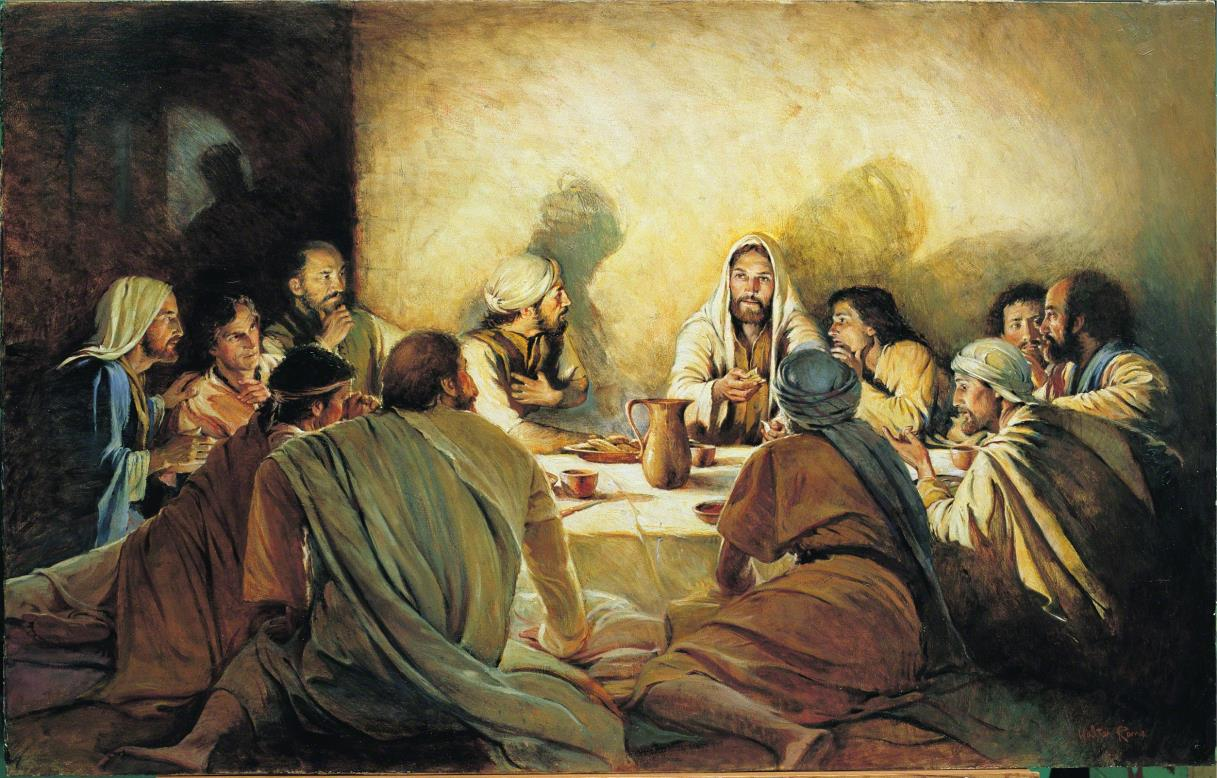Holy Supper
Why do we break the bread instead of cutting it up?
And taking the seven loaves and the fishes, giving thanks, He broke, and gave to the disciples, and the disciples to the crowd (Matt 15:36). He was known to them in the breaking of bread (Luke 24:35).
In the Ancient Church bread was broken when it was given to another, and by this was signified to communicate [or share] good from one’s own, and to appropriate it from one’s own, thus to make love mutual. For when bread is broken and given to another it is communicated from one’s own; or when bread is broken among several, then the one piece of bread becomes a mutual possession, and consequently there is conjunction through charity. From this it is plain that the breaking of bread was significative of mutual love (AC 5405).
It is manifest what is meant by eating in the Holy Supper… namely, to have communication, to be conjoined, and to appropriate to oneself (AC 2187:4). “To eat” signifies to be appropriated and conjoined by love and charity. Hence it signifies to be consociated. “To eat” is predicated of the appropriation and conjunction of good, and “to drink,” of the appropriation and conjunction of truth… Hence it is, that “to be famished” and “hungry,” in the Word, signifies to desire good and truth from affection. The angels understand the things here spoken of according to their internal or spiritual sense alone, because the angels are in the spiritual world. Hence holiness from heaven flows in with the men of the church, when they receive the Sacrament of the Supper with sanctity. And thence is conjunction with the Lord (HD 220).
There was put before me in a vision a small plate full of bread, cut up into squares…. I was told that broken bread, not cut, signifies celestial things, for bread is broken with the lips and teeth, as at first with the hand, before it is eaten. Because this is according to nature, therefore celestial things are signified by bread broken with the hand, lips, so with the teeth, and so on into the minutest [particles] by the muscles, fibers, as it were by the minutest hands, lips and little mouths of the recipient vessels. But bread cut up with a knife is what simulates what is celestial, and yet is not celestial, as is the case with everything that is done by art. Therefore the bread placed before me, because it was cut up into little squares [and] little cubes, as it were, with knives, signified loathsome pleasantnesses… which are supposed by such as are in loathsome pleasantnesses to be celestial, when yet they are infernal (SD 2626–2627).
How has Providence protected the Holy Supper from profanation?
Lest [the papists] should profane the most Holy Supper, it is of the Lord’s Divine Providence that they should divide it, giving the bread to the people and drinking the wine themselves; for the wine in the Holy Supper signifies holy truth and the bread holy good; but when they are divided, the wine signifies profaned truth and the bread adulterated good; and further, that they should make the Holy Supper corporeal and material, and adopt this as the primary principle of religion. Anyone who turns his attention to these particulars and considers them with a somewhat enlightened mind may observe the wonderful operations of the Divine Providence for guarding the holy things of the Church, and for saving all who can be saved, and who are willing to be saved (DP 257:6).
The Roman Catholics, if they approach God the Savior Himself, not mediately but directly, and likewise administer the Holy Eucharist in both kinds, may more easily than the Reformed receive a living faith in the place of a dead faith, and be conducted by angels from the Lord to the gates of the New Jerusalem or the New Church, and be introduced into it with joy and shouting (BE 108).
Questions
- What is the difference between a representative act and a correspondential act?
- Is it wrong for us to slice bread outside of the holy supper?
- Does it strengthen a sense of communion with others in the congregation to think of the bread and wine as a “mutual possession,” something we all share?
- What should be done if for health or other reasons one cannot take one or both of the elements?
- Is the Holy Supper ever administered privately or to meet special conditions? Should one be free to ask?
- When the Lord first administered the Holy supper the disciples reclined at a table. Why do we come forward? Why do we kneel and not sit? Reach to take it? Share it with married partners? Etc.
| previous |  |
next |
|---|


